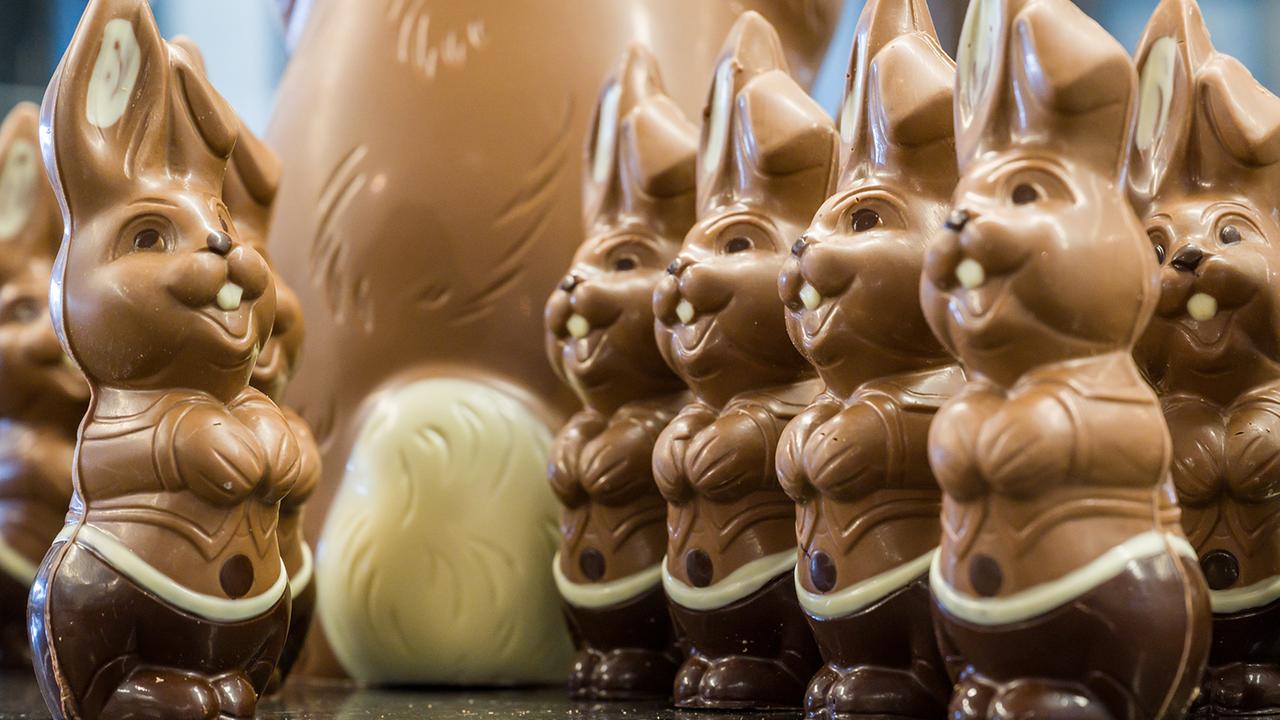Anyone who buys chocolate for the Easter nest this year pays significantly more and gets less. The reason is record prices for cocoa on the world market. Because weather extremes, pests and mismanagement ensure bad harvests.
Because of the increased increased prices for cocoa and chocolate, the confectionery manufacturers in Germany are expecting a lower demand for chocolate east bunnies this year. A total of around 228 million chocolate rabbits were produced and thus 5.1 percent less than in the previous year, the Federal Association of the German confectionery industry said.
Record prices for cocoa on the world market are reflected in chocolate rabbits, chicks and Co. “We see the chocolate market in front of a wave of inflation that has hardly occurred in recent history,” warns the US investment bank JP Morgan.
According to data from the Federal Statistical Office, consumers receive a third less chocolate for each euro than five years ago. The popular “gold bunny” from Lindt costs more than four euros for the first time. On average, plates are almost a third more expensive than in the previous year, as numbers from the NIQ market researcher show for the first quarter. In Germany, prices already affect chocolate consumption. According to NiQ, ten percent fewer table chocolate and 20 percent fewer chocolates were sold at the beginning of the year.
Weather extremes let harvels in West Africa
According to experts, the times of cheap cocoals are finally over. West Africa, where a good three quarters of all beans come from, feel climate change. Weather extremes, pests and mismanagement do the price.
The harvest in Ghana collapsed by almost half in 2024 – the worst in two decades – and recovers less than hoped for this year. The ivory coast also reported bitter declines. The ton of cocoa was traded in 2024 for up to around 12,000 euros, six times as expensive as a few years ago.
Chocolate could get cheaper ingredients
According to the industry, there is no way around West Africa. Around 80 percent of the cocoa in Germany comes from the Ivory Coast and Ghana. “If only because of the large import quantities and the planting period, a short or medium-term serious change from these two countries would be unrealistic as the main supplier for Germany,” says the Federal Association of the German Confidence Industry. In addition, the EU renovation regulation has severely restricted the new planting of cocoa in new growing areas.
For chocolate lovers, cocoa expert Tedd George sees a dark scenario: the candy itself could change. “It will still look and taste the same, but it will contain less and worse cocoa,” he says. Manufacturers are already experimenting with recipes to replace cocoa butter with cotton seed oil.




